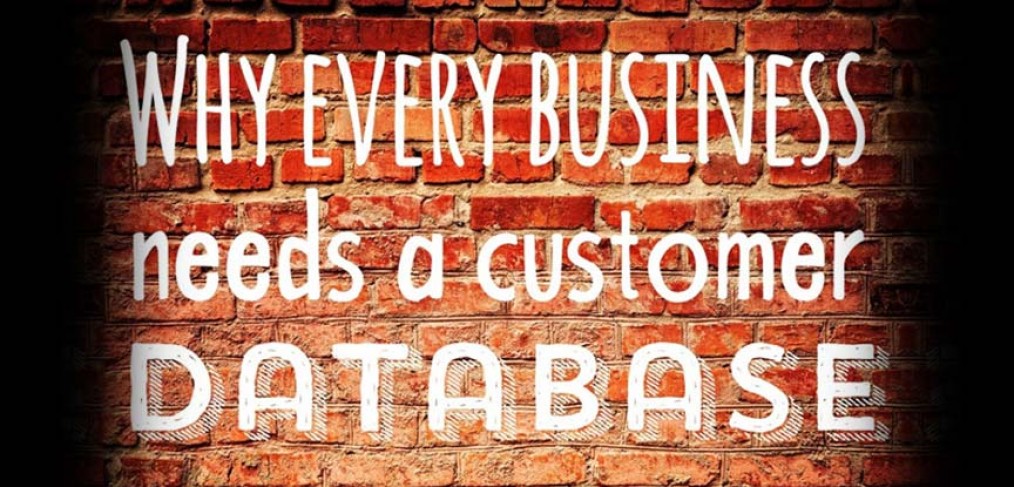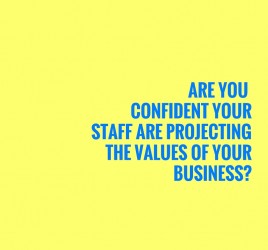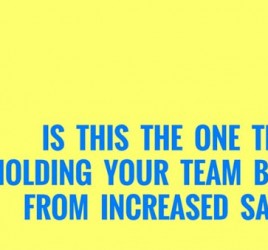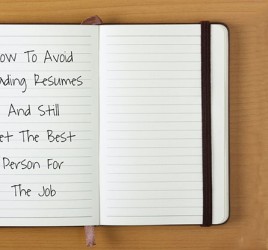
Why you should be collecting customer details
For business, developing a customer database has enormous financial potential now and when it comes time to sell your business. Collecting customer details ideally starts with the intention to learn more about the best type of customers you already have so you can attract more of them and drive more business your way.
Subscribers, Members, Lists, Customer Database
These words are all interchangeable. A database is simply a place where your customer’s information is stored and is usually collated using software of some kind. We’ve all been asked to fill out a paper or online form requesting our name, email, mobile phone number and other personal information numerous times. Collecting and storing all this information safely is what a database is.
Long gone is the recording of customer details in an address book or cardboard file if you’re wanting to build your business and use your database effectively. On a basic level, data collection can be as simple as the paper form version and storing it in one place like an electronic spreadsheet. Or, on an easier front, data entry can be done via an app or through CRM (customer relationship management) software that you may find as a function in your POS system. The problem with some of this software though is that it can sometimes be tricky to use. However you do it doesn’t entirely matter. It’s really about just doing it!
The type of information and the degree of detail you request of your customers depends on the type of business you have. A doctor’s surgery needs more information than a restaurant or boutique does. Personally, I give one of my email addresses out pretty freely. I’m less keen to give out specific personal details like my full date of birth and residential address to a retail store or restaurant though.
Our customers know we want to communicate with them so we have a means to connect with them, engage them, all with the hope they’ll continue to buy (more) from us. If you can strike a balance between discovering which personal data you need with what they’re prepared to share with you, you’ll get more people signing up.
Tip: Remove any barrier to sign-up wherever you can.
Why should I have a database?
Building a customer database has serious financial benefits for small business. Setting one up in your business can have massive value in both the short and long term. Do it right and you have a means to boost profits and increase your sale price when it comes time to move on to bigger and better things. It’s great to have your list or following on social media but having your own is better.
Here are my top three reasons why you should have your own database:
1. Better Decision Making
Collecting information about your customers means you will be equipped for better decision making. If you know specifics about your buying population you can do more to ensure they keep buying from you in the future.
Additionally, if you have the contact details of your customers you can survey them to discover their perspectives on everything from service to value for money.
Big business collects a lot of customer information on a grand scale. For them it’s to better deliver customers what they desire. Think about the lengthy form you had to fill in to become a member of your local supermarket’s rewards program. With all this information they’re storing about you and your buying decisions, they make a multitude of strategic decisions based on what the additional data tells them, not just from the sales figures.
When you know more, you can do more. If you know more about your best kind of customers, you can make choices to increase your chances of getting more people like them.
2. Increased Revenue
Developing a database has the means to generate lifelong customers. The more lifelong (or even longer-term) customers you have, the more revenue you have. It’s five times cheaper and far easier to sell to existing happy customers than to brand new customers who have no experience of your business.
Individuals sign up to your database or VIP club because they like what you. You may already keep your customers very happy but you might not always have them for life. By having their contact details you have the means to remind and educate them about your business and the range of products or services you have to offer. Do this well and you’ll be more likely to be front-of-mind when they need what you have.
3. Increased Sale Price
A database has real monetary value. Ask any business broker about the value of goodwill and they’ll tell you it’s hard to measure accurately. Goodwill is often measured by the future earning potential of the business based on it’s past performance. It’s often considered intangible and relates directly to the relationship a business has with the owner, valued staff and customers. Take those key people away and there may not be much goodwill tied to the business.
Like your sales and profit figures, detail is key. Own a bank of customer details that are up-to-date and plentiful and the savvy business owner will pay you handsomely for it. If you have a list of customers that you’ve built a relationship with, kept in contact with along the way, and maintained as customers, you have the capacity to increase the sale price of your small business by tens of thousands of dollars.
Patience and Persistence Pays
A customer database takes time to build and the return on investment is anywhere between three and six months away. While this sounds like forever, it really is the investment that keeps on giving once it’s up and underway. For my business, building a database and communicating with customers meant that we doubled our profits in twelve months.
Collecting customer details has the capacity to make enormous positive change in your business. Better decision making, increased revenue and an increased sale price are the perks. We could all do with that in our business right?
Feel free to share your thoughts and any tips you have for how to build a database in the comments box below. I’d love to hear from you. Regards, Mel.



